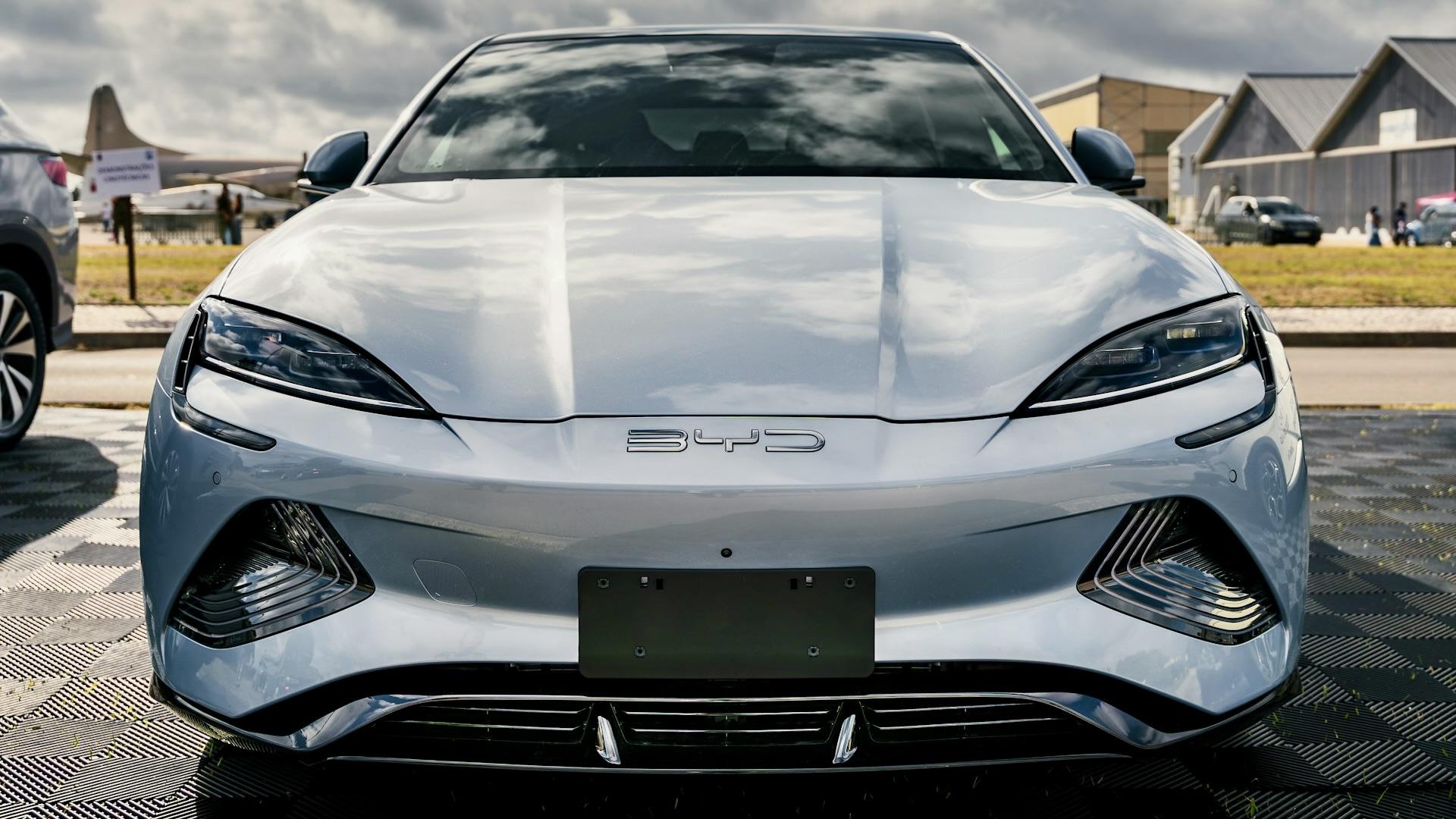Jinjiang Group, a contractor for BYD, has denied accusations of mistreatment at a Brazilian EV factory, calling them baseless and pointing to cultural misunderstandings as tensions grow over worker rights.
Jinjiang Denies 'Slavery-like Conditions' Claims
Brazilian officials' depiction of their workers as "enslaved" is at odds with the reality, according to Jinjiang Group, a contractor for BYD, a Chinese electric vehicle manufacturer. The company also claimed that translation errors were to blame.
Earlier this week, Brazilian labor authorities claimed to have discovered 163 Chinese nationals subjected to "slavery-like conditions" on the job site of a BYD-owned plant in the state of Bahia in Brazil. At the time, BYD announced that it was cooperating with authorities and had severed relations with the company that had employed the individuals.
Social Media Responses from BYD and Jinjiang
"Being unjustly labeled as 'enslaved' has made our employees feel that their dignity has been insulted and their human rights violated, seriously hurting the dignity of the Chinese people. We have signed a joint letter to express our true feelings," Jinjiang stated on its official Weibo account.
Li Yunfei, BYD's general manager of branding and public relations, shared their statement on his own Weibo account, Investing.com shares. "Deliberately smearing Chinese brands and the country and undermining the relationship between China and Brazil" were his accusations, along with "foreign forces" and certain Chinese media.
When questioned about Jinjiang's remarks and the circumstances, a BYD official referred Reuters to Li's Weibo post. Reuters asked Jinjiang for comment, but the company did not answer.
BYD’s Strategic Investment in Brazil
Brazil is the biggest overseas market for BYD's electric vehicles, thus the company has been constructing a factory there with the ability to produce 150,000 vehicles per year. Production is expected to begin in Brazil in 2024 or early 2025.
In July 2026, Brazil is planning to increase the tariff on imported electric vehicles from 18% to 35%.
Translation Errors and Cultural Differences Spark Controversy
Mao Ning, a spokesman for China's foreign ministry, stated on Wednesday that the Brazilian embassy was in contact with their Chinese colleagues in order to assess the issue and find a solution.
According to Jinjiang, the Brazilian inspectors' queries were "suggestive" and the scenario arose due to translation and cultural differences. Additionally, a video was shared showing a gathering of Chinese employees facing the camera. In the clip, one of the employees is seen reading aloud a letter that Jinjiang claims the workers have all signed.
In order to apply for a temporary ID certificate in Brazil, 107 employees entrusted the corporation with their passports, according to the letter. According to the Brazilian labor inspectors, the firm had withheld the workers' passports.
"We are very happy to come to Camacari to work," an unnamed Chinese man added in the video.
"We have been complying with laws and regulations, working hard during the period with a hope that the construction of the biggest new energy vehicle project in Brazil could be completed as soon as possible," he explained.



 Strait of Hormuz Oil and LNG Shipments Disrupted After U.S.-Israel Strikes on Iran
Strait of Hormuz Oil and LNG Shipments Disrupted After U.S.-Israel Strikes on Iran  Gold Prices Surge Over 2% After U.S.-Israel Strikes on Iran Spark Safe-Haven Demand
Gold Prices Surge Over 2% After U.S.-Israel Strikes on Iran Spark Safe-Haven Demand  Australia Housing Market Hits Record High Despite RBA Rate Hike
Australia Housing Market Hits Record High Despite RBA Rate Hike  Japan Manufacturing PMI Jumps to Four-Year High as Global Demand Strengthens
Japan Manufacturing PMI Jumps to Four-Year High as Global Demand Strengthens  Strait of Hormuz LNG Crisis Triggers Global Energy Market Shock
Strait of Hormuz LNG Crisis Triggers Global Energy Market Shock  European Stocks Slide as Middle East War Fears and Rising Oil Prices Shake Markets
European Stocks Slide as Middle East War Fears and Rising Oil Prices Shake Markets  Trump Warns Iran as Gulf Conflict Disrupts Oil Markets and Global Trade
Trump Warns Iran as Gulf Conflict Disrupts Oil Markets and Global Trade  Wall Street Futures Tumble as U.S.-Iran Conflict Escalates and Oil Prices Surge
Wall Street Futures Tumble as U.S.-Iran Conflict Escalates and Oil Prices Surge  Global Markets Reel as Euro Falls, Swiss Franc Surges and Oil Prices Spike After U.S.-Israel Strike on Iran
Global Markets Reel as Euro Falls, Swiss Franc Surges and Oil Prices Spike After U.S.-Israel Strike on Iran  Dollar Rallies as Middle East Conflict Weighs on Yen and Euro, Lifts Safe-Haven Demand
Dollar Rallies as Middle East Conflict Weighs on Yen and Euro, Lifts Safe-Haven Demand  The strikes on Iran show why quitting oil is more important than ever
The strikes on Iran show why quitting oil is more important than ever  Global Markets React as Dollar Surges, Swiss Franc Rallies After U.S.-Israel Strike on Iran
Global Markets React as Dollar Surges, Swiss Franc Rallies After U.S.-Israel Strike on Iran  ASX CEO Exit Signals Turbulent Transition Amid Lawsuit and Regulatory Scrutiny
ASX CEO Exit Signals Turbulent Transition Amid Lawsuit and Regulatory Scrutiny  South Korea Manufacturing PMI Rises for Third Month on Strong Semiconductor Demand
South Korea Manufacturing PMI Rises for Third Month on Strong Semiconductor Demand  Oil Prices Surge After U.S.-Israel Strikes on Iran, Raising Strait of Hormuz Supply Fears
Oil Prices Surge After U.S.-Israel Strikes on Iran, Raising Strait of Hormuz Supply Fears  Argentina Tax Reform 2026: President Javier Milei Pushes Lower Taxes and Structural Changes
Argentina Tax Reform 2026: President Javier Milei Pushes Lower Taxes and Structural Changes  PBOC Scraps Forex Risk Reserve as Yuan Rally Pressures Chinese Exporters
PBOC Scraps Forex Risk Reserve as Yuan Rally Pressures Chinese Exporters 































